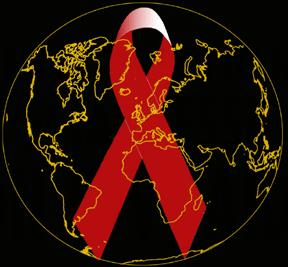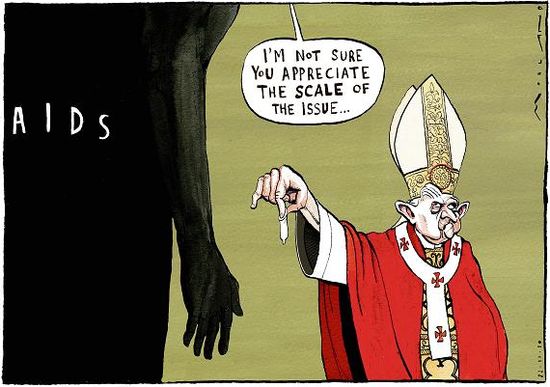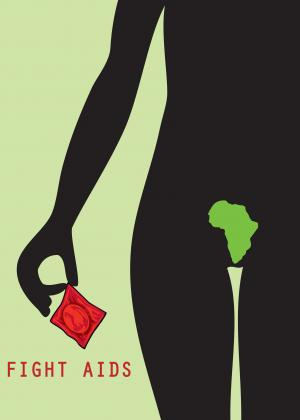I’m delighted to announce that Conscience Magazine reviewed my book.
Click on the Conscience logo above to view the blurb in the Bookshelf sidebar.
———————————————————————————————————————————

Alliance, Support & Activism

Click on the Conscience logo above to view the blurb in the Bookshelf sidebar.
———————————————————————————————————————————
World AIDS Day brings into focus the micro-strategies needed to combat a macro problem.
The theme for World AIDS Day 2011 is ‘Leading with Science, Uniting for Action’. Coincidently, later this month, December 10th to be precise, we will commemorate Human Rights Day. This is the 63rd anniversary of the adoption, by the United Nations General Assembly, of the Universal Declaration of Human Rights in 1948.
 The promotion and protection of human rights has been a major preoccupation for the United Nations since 1945, when the Organization’s founding nations resolved that the horrors of The Second World War should never be allowed to recur.
The promotion and protection of human rights has been a major preoccupation for the United Nations since 1945, when the Organization’s founding nations resolved that the horrors of The Second World War should never be allowed to recur.
Respect for human rights and human dignity “is the foundation of freedom, justice and peace in the world”, the General Assembly declared three years later in the Universal Declaration of Human Rights.
The Universal Declaration of Human Rights is the foundation of international human rights law, the first universal statement on the basic principles of inalienable human rights, and a common standard of achievement for all peoples and all nations.
In a world wracked by poverty, disease and war; where we threaten our very existence with climate altering pollution, nuclear proliferation and extreme population growth; is there room to talk about human rights that include sexual rights?
I emphatically say yes! In fact, I assert that sexual inequality and oppression is at the heart of many of the world’s problems. I contend that trying to address human rights without including the essential component of sexual rights is ultimately doomed to failure.
An absence of sexual rights leads to domestic and societal violence; human trafficking; suicide; a rise in Sexually Transmitted Infections (STIs) including HIV/AIDS; unplanned pregnancies, abortion, and sexual dysfunction.
You know how we are always being encouraged to Think Globally and Act Locally? Well, on this World AIDS Day while we busy ourselves with local concerns, I think we’d do well to focus some of our attention on what intricately binds us to the rest of the human community.
I offer three examples of what I’m talking about. I invite you to consider how a myopic HIV/AIDS treatment and prevention effort, when divorced from the overarching issues of human, economic, social and sexual rights often make our efforts ineffectual and, in some cases, even counterproductive.
***
A couple of years ago the research community was all aflutter about ‘conclusive’ evidence linking HIV transmission and uncircumcised males. While I’m certainly not ready to take this data on face value, let’s just say, for the sake of discussion, that the link is conclusive. A massive campaign of circumcision was proposed as the best means of HIV prevention. The medical community would descend on epicenters of the disease, scalpels in hand, ready to eliminate the offending foreskins from every male in sight, young or old.
evidence linking HIV transmission and uncircumcised males. While I’m certainly not ready to take this data on face value, let’s just say, for the sake of discussion, that the link is conclusive. A massive campaign of circumcision was proposed as the best means of HIV prevention. The medical community would descend on epicenters of the disease, scalpels in hand, ready to eliminate the offending foreskins from every male in sight, young or old.
But wait, there’s a problem. Most HIV/AIDS epicenters are in underdeveloped countries. In these places, access to enough clean water to attend to even the most basic personal hygiene, like daily cleaning under one’s foreskin, remains an enormous chronic crisis. Without first addressing the problem of unfettered access to clean water and adequate sanitation, which according to The United Nations is a basic human right, further disease prevention efforts are doomed.
I mean, what are the chances that surgical intervention would succeed—one that would involve significant and sophisticated aftercare; especially if there’s not even enough clean water for bathing?
These well-meaning medical personnel suggest imposing a strategy that not only works against nature—our foreskins do have a purpose after all: a healthy prepuce is a natural deterrent to infection. But this intervention would also violate long-held cultural and societal norms—circumcision is abhorrent to many of these same cultures. Wouldn’t this proposed prevention effort to stem the tide actually make matters worse?
***
 Other epicenters of the global HIV/AIDS pandemic are associated with indentured sex work. Until the economic and educational opportunities for women throughout the world improve—which is a basic human right according to The United Nations—women will remain chattel. Families in economically depressed areas of the world will continue to be pressured to sell their daughters (and sons) simply to subsist.
Other epicenters of the global HIV/AIDS pandemic are associated with indentured sex work. Until the economic and educational opportunities for women throughout the world improve—which is a basic human right according to The United Nations—women will remain chattel. Families in economically depressed areas of the world will continue to be pressured to sell their daughters (and sons) simply to subsist.
Closing brothels and stigmatizing prostitutes as a means of disease prevention overlooks the more pressing human rights concerns at play here. Sex is a commodity because there is a voracious market. Men from developed nations descend on the populations of less developed nations to satisfy sexual proclivities with partners they are prohibited from enjoying in their own country. Young women (and boys) in developing countries are viewed as exploitable and disposable, because they don’t have the same civil protections afforded their peers in the developed world. And runaway population growth in countries that deprive their women and girls access to education and contraception inevitably creates a never-ending supply of hapless replacements.
Addressing the endemic gender inequality in many societies is key. Equal access to education and economic resources must come before, or at least hand in hand with any serious sexually transmitted infection prevention effort.
***
Finally, people in the developed world enjoy a certain level of affluence and economic stability which allows them to indulge in sex recreationally. Thanks to effective birth control methods we can ignore the procreative aspects of sex and replace it with a means of expressing a myriad of other human needs. Not least among these are status, self-esteem and self-expression.
If we’re trying to prove something to ourselves, or others, by the way we conduct our sexual lives, simple prohibitions against certain sex practices won’t work. If I’m convinced that unprotected sex with multiple partners and sharing bodily fluids is edgy, cool fun, without serious consequence, as it’s portrayed in the media (porn); I will be more likely to express myself the same way. This is especially true for young people who are already feeling invincible.
Case in point: there has been a startling uptick in seroconversions among young people, particularly gay men, which indicates that disease prevention efforts, even in the world’s most affluent societies, are simply not up to the task. It’s not that there is a scarcity of resources, quite the contrary. It is more likely that these efforts are not connected to a fundamental understanding of the role sexuality plays in the gay community (and increasingly among non-gay people). I believe that sexual expression and sexual pleasure are the overarching issues here. These too are fundamental human rights.
Bareback (condomless) porn went from being a pariah genre on the periphery of the gay porn industry just a few years ago, to the hottest, most prolific and biggest moneymaking genre today. It’s no accident or coincidence that this surprising reversal coincided with this the increase of HIV/AIDS infections in certain populations. I hear from people all the time, from those inside as well as outside the porn industry, who tell me that it’s their prerogative to engage in unprotected sex. “I have the right to express myself that way,” I am often told. “If one has the bad luck to seroconvert, it’s just that, bad luck. After all, HIV is now a manageable chronic condition, not unlike diabetes,” or so the reasoning goes. So I should just get over it and mind my own business.
No amount of safer sex proselytizing is going to overcome this kind of resistance. I propose we need to look at why and how we express ourselves sexually. As we unravel this complex jumble of motivations and behaviors, effective prevention strategies will manifest themselves clearly. We must develop a sex-positive message; one that celebrates sexuality, builds self-esteem and counteracts the prevailing media messages of sex with no consequences.
***
World AIDS Day brings into focus the micro-strategies needed to combat a macro problem. But it also shows that we cannot fight this, or any disease, in a vacuum. It’s imperative that we see how global health and wellbeing is completely dependent on basic human rights, including sexual rights that include gender and reproductive rights, the elimination of sexual exploitation and the freedom of sexual expression.
Human rights that include sexual rights encompass the goals of World AIDS Day—increasing awareness, fighting prejudice and improving education. But applying these principles must cover the full spectrum of human sexuality, gender equality, reproductive health and, dare we say it, pleasure. To repeat the General Assembly declaration; Respect for human rights and human dignity “is the foundation of freedom, justice and peace in the world.”
Author Kay Jaybee interviews me about my book, and other topics of interest.

Click on the Kay Jaybee’s logo above to view the interview.
———————————————————————————————————————————
Part 3 of a 5-Part Series — Understanding Catholic Moral Theology
The most contentious hot button issue for the Roman Catholic hierarchy today is gay marriage. The pope and his bishops stand united, at least publicly, in vehement opposition. But that’s as far as the unanimity goes. Your typical church going lay Catholic isn’t all that up in arms about gay marriage. Surveys show that Catholics are more accepting of LGBT people than any other Christian group. According to a May 2010 Gallup Poll; 62 percent of Catholics said gay and lesbian relationships are morally acceptable. That’s a 16 percent increase from just four years earlier.
Why the big disconnect between the leadership and the laity? Good question. First off, the Magisterium, the teaching authority of the Church, is in a dogmatic bind. The procreative nature of sex is the bedrock issue of Catholic sexual morality. There can be no legitimate expression of sex outside the confines of heterosexual marriage. And even within a marriage, all sexual expression must be open to procreation. (See last week’s article — Sins Of The Flesh)
The Church leadership opposes homosexual activity because it is “intrinsically disordered and an abuse of our human nature.” And marriage is “a conduit through which God’s grace flows to the couple and their children.” So you can see that in the mind of the bishops, the two concepts “gay” and “marriage” are really mutually exclusive. That’s why they use what little moral authority they have left after the clergy abuse scandals and their always deep pockets (Where does that endless supply of money come from anyway?) to push for bans on same-sex marriage and even civil unions in states from California to Maine.
The bishops argue that the law influences what is socially permissible and acceptable. “In effect, giving same-sex unions the legal status of marriage would grant official public approval to homosexual activity and would treat it as if it were morally neutral.”
But there is a growing groundswell of vocal Catholics urging mutiny against the hierarchy on this issue. Much like in the early 1970’s when activists formed Dignity, a worship-based support system for gay Catholics; Equally Blessed, a coalition of faithful Catholics who support full equality for lesbian, gay, bisexual and transgender people both in the church and in civil society was born September 2010.
The majority of lay Catholics are at loggerheads with the hierarchy because the two groups keep talking past each other. The bishops insist on defending their interpretation of the unique meaning and purpose of marriage, i.e. “a faithful, exclusive lifelong union of a man and woman” who “commit themselves completely to each other and to the wondrous responsibility of bringing children into the world and caring for them.” And lay activists focus on compassion and human rights. Each group believes the other is missing the point.
It’s not surprising then that public relations snafus, like the one that happened last September, occur. Archbishop John Nienstedt, of the Saint Paul and Minneapolis archdiocese, and his fellow bishops in Minnesota mailed out 400,000 DVDs, explaining the Church’s position on the institution of marriage. Every registered Catholic family in their state received one. The bishops said that the DVD simply defended the Church’s position, but most people saw it as a ham-fisted attempt to influence the upcoming election. This sparked an equally high profile ”Return the DVD” campaign, which questioned the priorities of bishops and planed to make art from the returned DVDs. The faithful asked; How could the over $1 million spent to distribute these DVDs have benefited the poor?
As one would expect, the American Catholic hierarchy is playing hardball. They simply will not countenance decent. Pro-gay priests are being silenced or removed from ministry. Inclusive worship communities, like Dignity, have been exiled from Church property. Organizations like New Ways Ministry, a gay-positive ministry of advocacy and justice for lesbian, gay, bisexual, and transgender Catholics, has been vilified and their loyal opposition denigrated. Even the artist who suggested the DVD sculpture in Minnesota was suspended from her artist-in-residence job at the Basilica of St. Mary in Minneapolis. And some of the lay faithful are being denied the sacraments for their conscientious objection to this church teaching.
This is pretty much business as usual for Church leadership. But the opposition shows no sign of caving. If anything they appear emboldened by the example of nuns who broke with the Catholic bishops by supporting the health-care overhaul Congress passed in March 2010.
In the end, a detente will no doubt settle in as it has in all the countries that have already adopted same-sex marriage — Argentina, Belgium, Canada, Iceland, Netherlands, Norway, Portugal, South Africa, Spain and Sweden. In the meantime, however, American Catholics of conscience know that they are in the midst of a struggle every bit as significant as the struggle against segregation. For them sexual orientation is as much a part of a person’s identity and humanity as the color of a person’s skin or his/her gender. Clearly they have plenty of work ahead of them as they demand the Church leadership to live up to the most basic standards of human decency.
Another review of my book, this time in marvelous E-zine — Oysters & Chocolate.
Click on the O&C logo above to view the interview.
———————————————————————————————————————————
Thoughtful review of my book on Men of Color Blog.
Click on the MOC logo to view the interview.
———————————————————————————————————————————
From Gay Priest to Certified Sexologist with Dr. Dick. Look for the link on the NEWS & INTERVIEWS page.
Part 1 of my first interview about my new book: SECRECY, SOPHISTRY AND GAY SEX IN THE CATHOLIC CHURCH; The Systematic Destruction Of An Oblate Priest
Click on the page tab in the header!